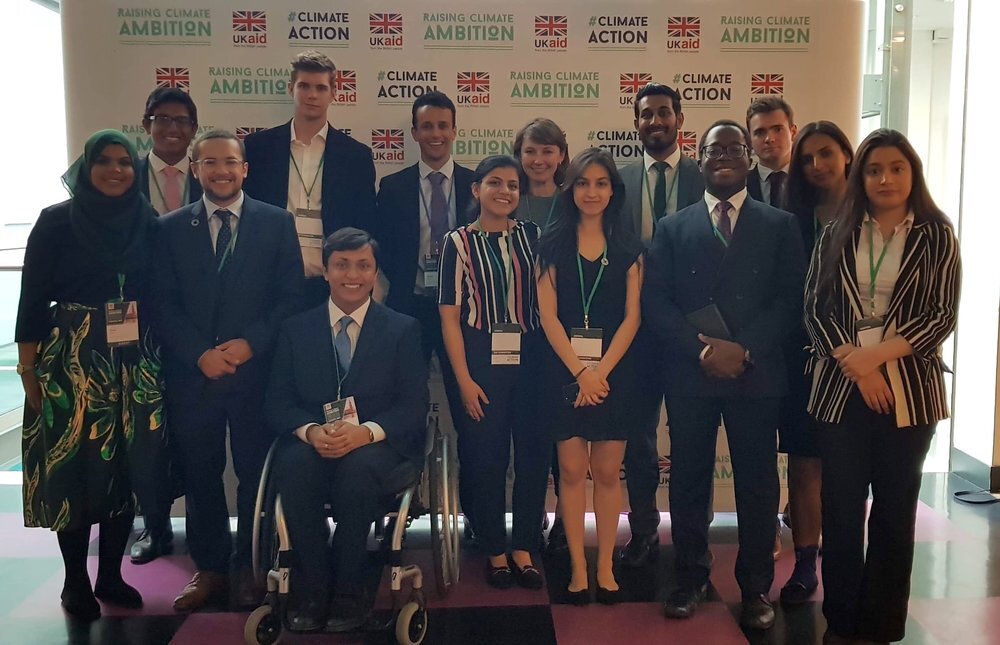On Wednesday 3rd July, select members of the FLN were invited to The Royal Institution, Mayfair to hear from global leaders. The topic was 'Raising Climate Ambition', and we were hosted by Her Majesty’s Department for International Development.
The day kicked off with a networking session, where I met several other FLN members, ranging from university students, studying everything from medicine to international development, and recent joiners of grad programs to young professionals. We also met members of the public and private sectors, such as staff from DFID and from the British Red Cross. Shortly after we heard from the Secretary of State for International Development, the Rt Hon Rory Stewart OBE MP. The Secretary spoke about the UK's progress on the environmental front, such as ensuring all aid is Paris agreement compliant, committing to net zero carbon by 2050, and putting £190 million into new research on resilience in the developing world.
The UK has three main initiatives that it will be trying to get the UN to adopt, based around climate finance, early warning systems, and the integration of resilience measures in relation to climate. This is all in anticipation of the Climate action summit in September, hosted by the UN Secretary-General. The SG has divided the conference into nine workstreams, Finance, Energy Transition, Industry Transition, Nature-Based Solutions, Cities and Local Action, Mitigation Strategy, Youth Engagement and Public Mobilization, and Resilience and Adaptation, which the UK, along with Egypt, is leading on. This means that we are trying to develop 'Resilient people, a Resilient environment and Resilient economies and investment'.
Following the secretary, the Minister of Environment, Climate Change and Natural Resources from the Gambia spoke, about the need for 'action to be accelerated'. The current pledges made by national governments will lead to a rise in global temperatures of 3oC, and the environmental difference between 1.5 and 2 degrees is astounding, while 3 degrees is unimaginably worse. The LDC group of countries, on whose behalf he spoke, are committing to low carbon by 2030 and net-zero by 2050. These are issues of 'people and planet', 'fairness and justice'.
The final speaker, the Minister of Water and Environment from Uganda spoke about the importance of finance, decentralised finance for climate- affected economies, that lack strong financial institutions. The existing long process of accessing these funding leads to higher costs, and so less money reaches the communities that need them. This was in line with Secretary Stewart's remarks, that the SDG funding gap is currently 2.5 trillion. The SDGs include pledges about climate and energy, as well as education, economic growth and healthcare.
After a quick break, I attended a panel on Financing for a Resilient Future. While very high-level, there was an understanding that 'green bonds' and any existing financial infrastructure, or tools, will not be enough. The issue, however, is a lack of consensus on how to move forward. How can investors be confident of returns, when environmental forecasting is so uncertain.
Uncertainty seems to be running high. The lack of environmental consensus, with differing views from Washington and Beijing and the lack of knowledge about future flooding risk in the UK, and of drought abroad makes climate issues difficult. But this does not make them any less real.
Nathaniel Ogunniyi is a second-year Philosophy, Politics and Economics undergrad at the University of Southampton. He has interests in environmental and economic issues and in the discovery of their solutions. Following his bachelors, he would like to read a masters degree, in public policy, and help find those solutions.


